
What is a rollator walker? Who needs to use a rollator walker?
2024-08-05 15:30
As an important assistive tool, the rollator walker provides convenience and independence for many people to walk. However, not everyone is suitable for a rollator walker.
This article will analyze in detail who needs to use a rollator walker and who should not use a rollator walker to help users better understand and choose this assistive tool.
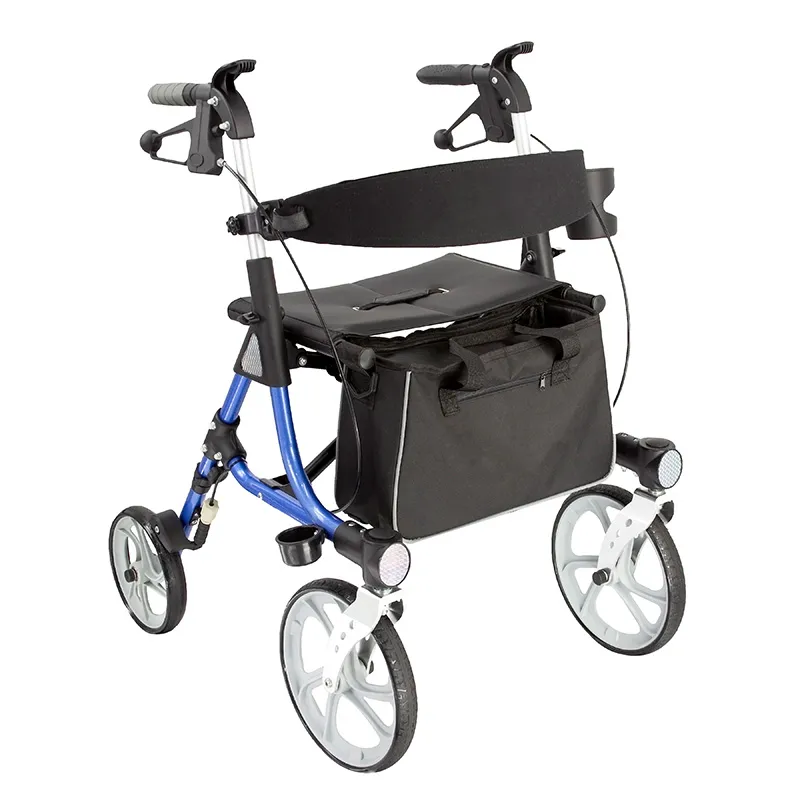
What is a rollator walker?
A rollator walker is a wheeled walker, usually equipped with four wheels, a seat and a brake system. It provides users with support for walking, and at the same time, due to the design of the wheels, it is more flexible and easy to move. Rollator walkers are commonly used by the elderly, rehabilitation patients and other people with limited mobility to help them regain their walking ability and independence.
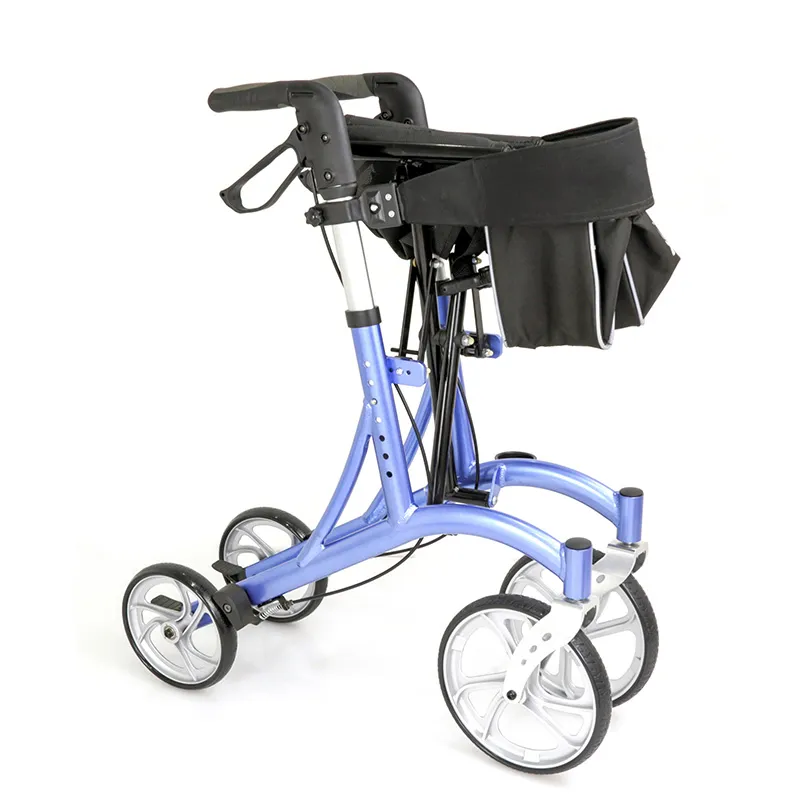
Who needs to use a rollator walker?
Elderly people with unstable walking and weak physical strength, rehabilitation patients (postoperative/stroke rehabilitation patients), chronic disease patients (arthritis/Parkinson's disease patients), and people with limited mobility all need to use a rollator walker. The reasons are as follows:
1. Elderly people:
● Elderly people with unstable walking: As they age, many elderly people will have unstable walking and are prone to falling. Rollator walkers provide them with additional support and stability, reduce the risk of falling, and help them walk safely at home or outdoors.
● Elderly people with weak physical strength: Some elderly people will feel tired after walking for a long time due to their weak physical strength. Rollator walkers are equipped with seats, so elderly people can sit down and rest at any time when they feel tired, which increases the comfort and safety of walking.
2. Rehabilitation patients:
● Postoperative rehabilitation patients: Many postoperative patients need rehabilitation training to gradually restore their walking ability. Rollator walkers provide them with the necessary support and stability to help them walk safely during the rehabilitation process and gradually restore their physical strength and walking ability.
● Stroke rehabilitation patients: Stroke patients often need to relearn how to walk, and rollator walkers provide them with stable support to help them gradually restore their balance and coordination during the rehabilitation process.
3. Chronic disease patients:
● Arthritis patients: Arthritis patients often have difficulty moving due to joint pain. The rollator walker provides them with extra support, reduces joint pressure and pain, and helps them walk more easily.
● Parkinson's disease patients: Parkinson's disease patients often experience an unstable gait when walking. The rollator walker provides them with stable support, helping them to better maintain balance and walking ability in daily life.
4. Other people with limited mobility:
● People with poor sense of balance: Some people have poor sense of balance due to congenital or acquired reasons and are prone to falling. The rollator walker provides them with extra support and stability to help them maintain balance when walking.
● People with weak leg strength: People with weak leg strength need extra support when walking due to muscle atrophy or other reasons. The rollator walker provides them with the necessary support to help them maintain independence in daily life.
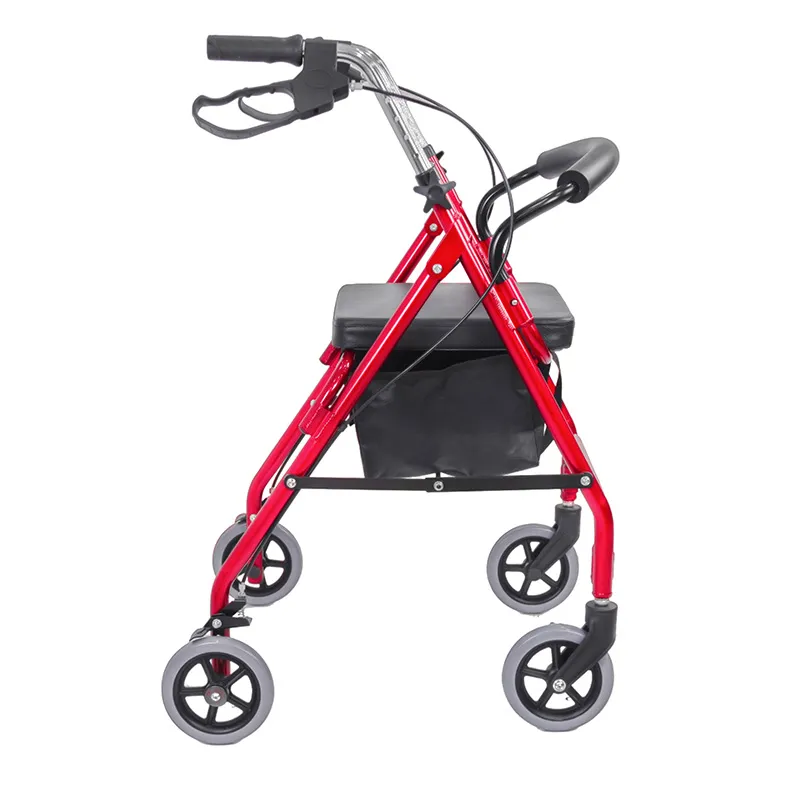
Who should not use the rollator walker?
People with limited cognitive ability (such as dementia/confusion), people with severe physical deficiency (such as unable to walk independently/excessively weak), and people with small space and uneven ground at home should not use the rollator walker. The reasons are as follows:
1. People with limited cognitive abilities:
● Dementia patients: People with dementia often have decreased cognitive abilities and poor judgment. Using a rollator walker requires certain operating abilities and judgment, such as using brakes and steering. People with dementia may not be able to operate the rollator walker correctly, which increases the risk of falling.
● People with blurred consciousness: Some diseases or medications may cause patients to have blurred consciousness and be unable to correctly judge and operate the rollator walker. Such patients may be in danger when using the rollator walker, increasing the risk of falling.
2. People with severe physical insufficiency:
● People who cannot walk independently: Although the rollator walker provides support and stability, it still requires the user to have a certain walking ability. If the patient is completely unable to walk independently, the rollator walker cannot provide enough support, which may lead to more serious falls and injuries.
● People who are too weak: Some diseases or conditions may cause patients to have severe physical insufficiency and be unable to use the rollator walker normally. People who are too weak may fall due to lack of physical strength when using the rollator walker, and should choose other more suitable assistive tools, such as wheelchairs.
3. People who use the rollator walker in an unsuitable environment:
● People with small space at home: The rollator walker requires a certain amount of space to operate and use. If the space at home is small, the use of the rollator walker may be restricted, and it cannot be unfolded and used normally, but increases the risk of falling.
● People with uneven ground: Although the rollator walker is equipped with wheels, problems may occur when using it in an environment with uneven ground, such as the wheels getting stuck or sliding. In this case, the rollator walker may not provide sufficient support and stability, increasing the danger of use.
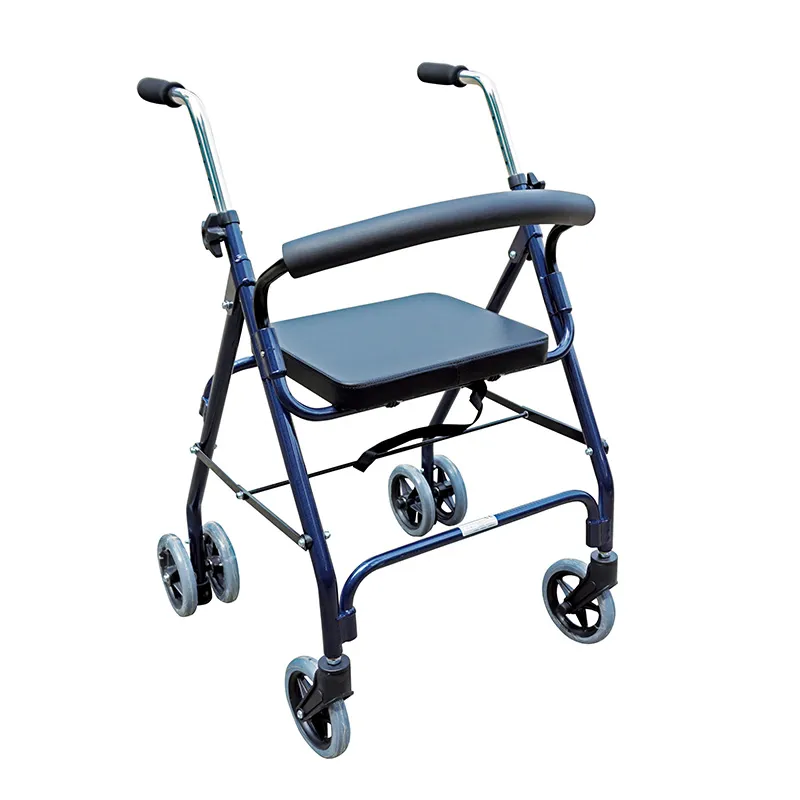
How to use the rollator walker correctly?
1. Choose a suitable rollator walker:
● Choose according to height: The height of the rollator walker should be adjusted according to the user's height, ensuring that the user's arms hang naturally and the elbows are slightly bent when using it. The right height can provide better support and comfort.
● Choose according to the use environment: Choose a suitable rollator walker according to the user's use environment. If it is mainly used indoors, you can choose a lighter model; if it is mainly used outdoors, you can choose a model with larger wheels and strong durability.
2. Learn the correct way to use it:
● Use the brake system: The rollator walker is equipped with a brake system. Users should learn how to use the brakes correctly when walking so that they can stop the rollator walker in time when needed to prevent sliding and falling.
● Correct walking posture: When walking with a rollator walker, you should maintain a correct walking posture and avoid over-reliance on the support of the rollator walker. Users should try to maintain an upright posture, hold the handle easily, and avoid leaning forward or backward.
3. Regular maintenance and care:
● Check the wheels and brakes: Regularly check the wheels and brake system of the rollator walker to ensure that they are in good condition. The wheels should remain flexible and the brake system should be able to work properly to ensure safety during use.
● Cleaning and maintenance: Clean the rollator walker regularly to avoid dust and dirt accumulation. Metal parts should be lubricated regularly to prevent rust and wear. The seat and handle should be kept clean and dry to provide a comfortable use experience.
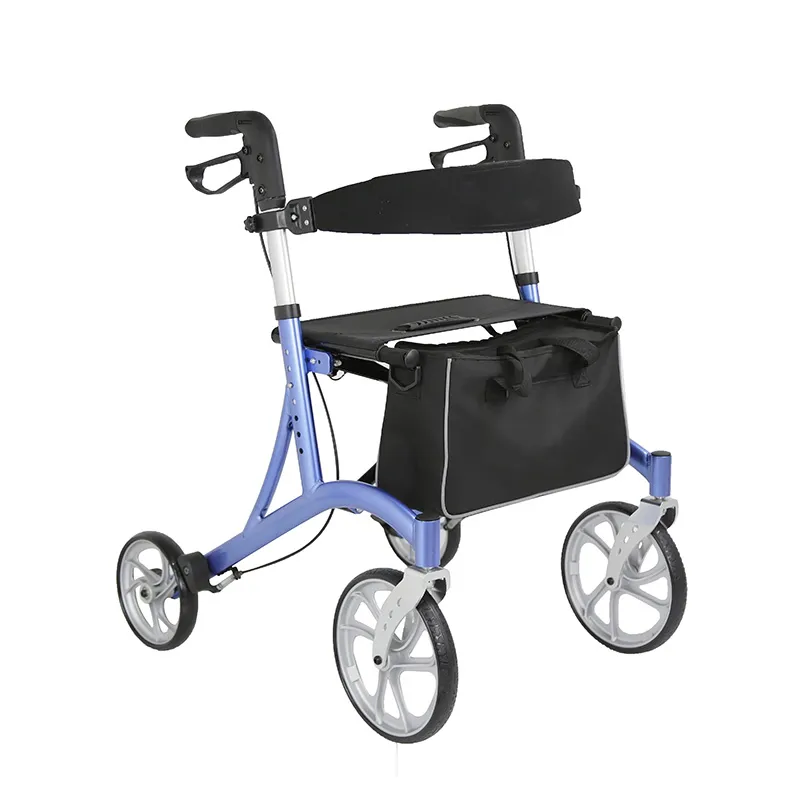
Summary on whether you should use a rollator walke
As an important auxiliary tool, the rollator walker provides convenience and independence in walking for many people with limited mobility. However, not everyone is suitable for using a rollator walker. The elderly, rehabilitation patients, chronic disease patients and other people with limited mobility are the main user groups, while people with limited cognitive abilities, severe physical deficiencies and unsuitable environments should not use a rollator walker.








